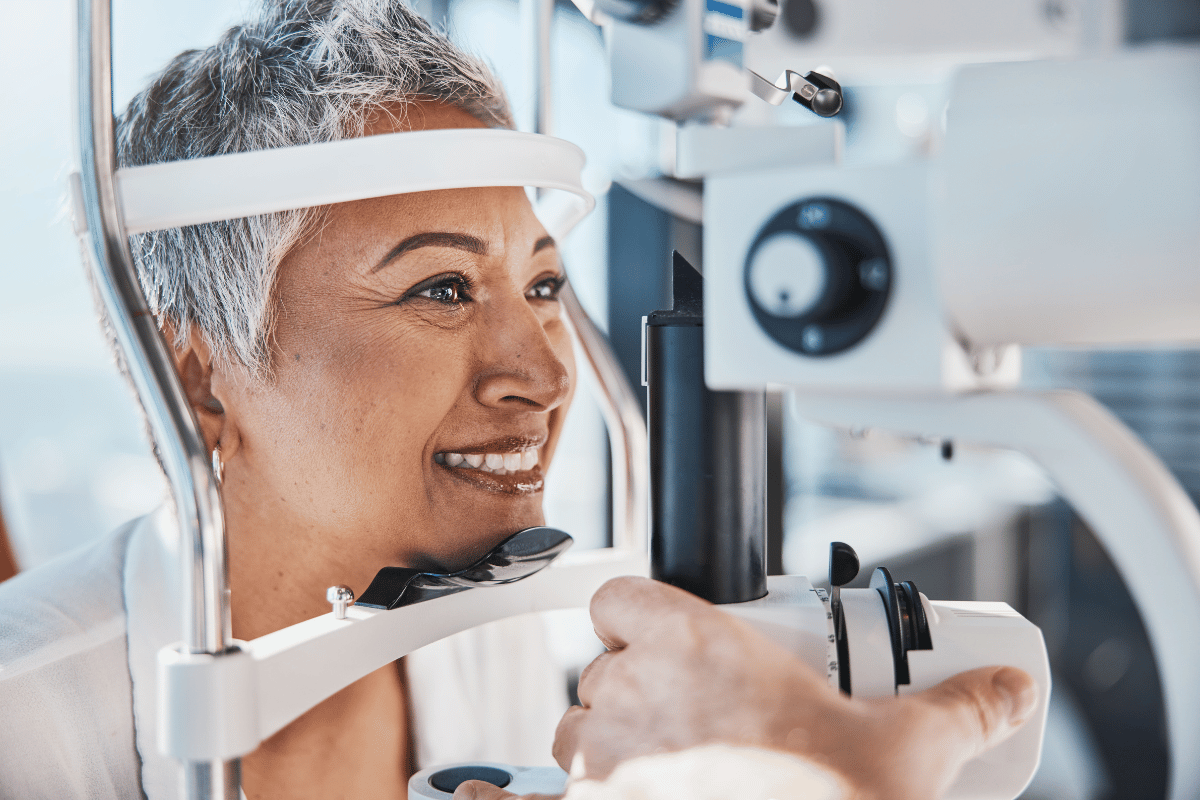As we go about our busy lives, it’s easy to overlook the importance of eye exams. However, maintaining good eye health is crucial for our overall health and well-being, and comprehensive eye exams can detect many conditions that have no symptoms early on. For example, did you know your retina is the only place in your body where your blood vessels are directly visible? That means our eye doctor can spot signs of systemic health issues you may be unaware of. Here are some eye conditions and other health issues our optometrist may detect during a comprehensive eye exam:
Refractive errors
One of the most common conditions that can be detected during an eye exam is refractive errors, such as nearsightedness, farsightedness, and astigmatism. Refractive errors occur when the shape of your eye prevents light from focusing directly on the retina, leading to blurry vision. These issues can usually be corrected with glasses or contact lenses.
Glaucoma
Glaucoma is a serious eye condition that can lead to vision loss and even blindness. It affects the optic nerve, which sends visual messages from your eyes to your brain. Glaucoma typically has no symptoms in its early stages, which is why it’s often referred to as the “silent thief of sight.” A comprehensive eye exam is the only way to detect signs of glaucoma early on before permanent damage occurs. Early detection is crucial in managing this condition and preventing further damage to your optic nerve.
Cataracts
Cataracts are a common occurrence as we age, but they can also develop because of injuries or certain medical conditions like diabetes. Cataracts happen when the proteins in the lens of your eye start to break down and clump together, clouding your vision. Using advanced diagnostic technology, our eye doctor can examine your lens for signs of a cataract. In most cases, she will detect a cataract before you even notice symptoms. She can then track the progression of your cataracts over time and update your prescription for glasses or contact lenses to restore your vision. Eventually, surgery will be necessary if cataracts are having a significant impact on your vision and quality of life.
Macular degeneration
Macular degeneration is another eye disease that affects individuals as they age. In the early stages, AMD may have no noticeable symptoms. During an eye exam, our doctor will check for signs of AMD and test your central vision. While there’s no way to reverse vision loss due to AMD, treatment can slow its progression and prevent further damage.
Diabetic eye disease
Having diabetes increases your risk of other health problems, including eye diseases. High blood sugar can damage the blood vessels in the back of your eye, leading to diabetic retinopathy. Diabetics are also at higher risk of developing certain eye conditions, such as cataracts and glaucoma, at an earlier age. If you have diabetes, annual eye exams will help to protect your eyes from serious sight-stealing diseases.
Dry eye
If your eyes are frequently dry, itchy, and irritated, you may suffer from dry eye syndrome. While some cases can be temporary, dry eye is often a chronic issue that requires ongoing care. Our dry eye specialists in Plymouth can examine your eyes for signs of dry eye during a comprehensive eye exam and recommend advanced treatment options like light therapy and a deep cleaning procedure for your eyelids and eyelashes.
Other issues
Did you know that your eyes can act as a window into your overall health? Along with eye-related concerns, an eye exam can reveal early signs of other conditions lurking in your body. Stroke, diabetes, high blood pressure, high cholesterol, autoimmune diseases, neurological conditions, and even certain cancers can all affect the eyes. In fact, our eye doctors can often detect these issues before you even know there is a problem.
In conclusion, a comprehensive eye exam is about much more than just checking if you need glasses or contact lenses. By scheduling regular eye exams with our optometrists at Progressive Family Eye Care, you can ensure that your eyes are healthy and catch any issues early on. Schedule your next eye exam in Plymouth, Michigan.





